Kevin B. Johnson Co-Authors National Academy of Medicine AI Code of Conduct
Kevin B. Johnson, MD, MS, co-authored a National Academy of Medicine report guiding the ethical use of AI in health and medicine.
Transforming biomedical and population health through impactful, data-driven discoveries that advance clinical practice and health outcomes globally.
Bridging multiple disciplines, our research community addresses critical health challenges through innovative data science. Explore the diverse research areas where we’re making significant advancements and driving meaningful change.
Artificial intelligence (AI) and machine learning (ML) are transforming biomedical data science by addressing challenges such as scalability, data integration, computational burden, bias, and model interpretability. Our researchers are focused on developing novel ML methods for predictive modeling, identifying risk factors, and automating data analysis for reliable, unbiased applications. We emphasize explainability, using innovative visualization tools to ensure trust and accountability in AI-driven insights. These cutting-edge approaches enhance knowledge discovery and accelerate translational medicine, making AI an ML accessible to informaticians and clinical researchers for improved healthcare outcomes.

Causal reasoning is essential at every stage of research, from design to analysis and interpretation. With the ability to link complex data sources—like electronic medical records, health claims, imaging, and high-throughput biological data—come new challenges that necessitate advanced causal inference methods. Our faculty, students, and post-doctoral fellows working in biostatistics and epidemiology are developing innovative causal inference techniques to address diverse research questions. We focus on cutting-edge methods including instrumental variables, Bayesian models, semiparametric theory, propensity scores, machine learning, and dynamic treatment strategies. Our expertise supports numerous multidisciplinary collaborations within the Perelman School of Medicine and beyond, spanning fields such as cancer, chronic kidney disease, genetics, health policy, and pharmacoepidemiology.

Clinical informatics is transforming how we deliver healthcare by integrating informatics and emerging technologies to enhance patient care and streamline provider experiences. Also known as applied clinical informatics or operational informatics, this research area involves the use of informatics in the discovery and management of new knowledge relating to health and disease. This includes efforts focused on mining electronic health record data to further population health research and precision medicine, as well as the development of clinical decision support systems to enhance clinical care, including the exploration of AI tools for automation. Clinical informatics and translational bioinformatics are the primary domains related to informatics efforts supporting translational research.

Randomized clinical trials are essential for evaluating the efficacy and safety of new and existing treatments. Our faculty lead in trial design and analysis across diverse medical fields, contributing to breakthroughs in cancer therapies, COVID-19 treatments, and major studies in nephrology, mental health, HIV, sleep disorders, and more. With expertise in advanced methodologies like cross-over designs, Sequential Multiple Assignment Randomized Trial (SMART) design, and survival data analysis, our researchers ensure rigorous trial conduct. We also address key challenges, including missing data, surrogate endpoints, and measurement error, advancing clinical research that shapes medical practice and improves patient outcomes.

The growing availability of biomedical data from sources like electronic health records (EHRs), epidemiologic studies, omics platforms, and environmental assessments presents new opportunities for health insights. However, integrating these diverse, complex data types requires advanced informatics approaches. Our researchers develop innovative methods to efficiently combine heterogeneous data, enabling actionable insights across health domains such as Alzheimer’s disease, cancer, maternal health, and pulmonary conditions. By leveraging these integrative techniques, we address limitations of smaller, narrowly focused studies and drive advancements in personalized and population health.

Wearable sensors are transforming personalized medicine and remote healthcare by capturing real-time data on movement, sleep, behavior, and mood with high sensitivity. These technologies provide continuous monitoring beyond traditional clinical assessments. However, the vast amounts of data generated require advanced statistical methods to manage complex dependencies and individual variations. Our researchers develop tailored analytic frameworks to integrate and analyze these data, enabling the discovery of new disease markers, identification of subgroup patterns, and exploration of relationships across biological domains, ultimately improving diagnostics and personalized care.

Our research investigates the underlying causes of health and disease by exploring the intricate web of biological, genetic, behavioral, social, and environmental factors that shape population health. By studying diverse patient populations, such as those served by Penn Medicine and the Children’s Hospital of Philadelphia, and collaborating with global research networks, we aim to uncover the root causes of health and disease, and translate these findings into effective strategies for prevention, diagnosis, and treatment. Our work is dedicated to advancing our understanding of health and disease, ultimately improving outcomes for individuals and communities worldwide.
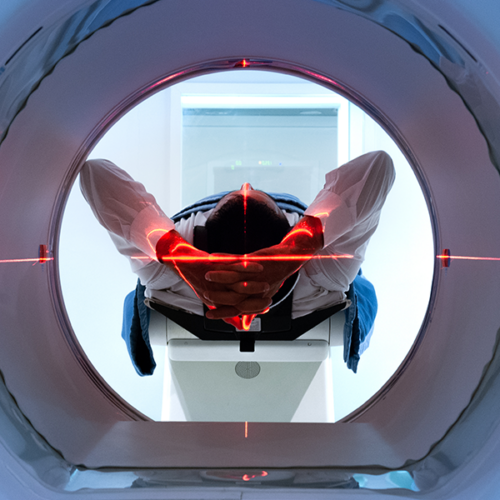
Our research is examining how environmental, biological, and behavioral exposures affect population health. We investigate the complex interplay between genetic factors, environmental chemicals and contaminants, medications, lifestyle choices, and social determinants of health to uncover their roles in the development of health and disease. By identifying emerging health risks and understanding their effects, we aim to develop strategies for prevention, recommend safer interventions, and guide public health policies to improve health.

Since the Human Genome Project, genetics and genomics have become integral to nearly all biomedical research, offering new insights into complex diseases. However, the vast and complex data generated by modern technologies present significant analytical challenges. Our researchers lead the development of advanced statistical and machine learning methods to address these challenges, focusing on integrating diverse data types and modeling population-level phenomena. Their work includes genome-wide association studies, precision medicine using single-cell genomics, metagenomics, and gene therapy for rare diseases, advancing our understanding of genetic influences on health and disease.

Our research is dedicated to advancing health equity by understanding and addressing the diverse factors that influence health behaviors and outcomes, and healthcare access and delivery. We investigate how social, economic, environmental, and policy determinants create health disparities, and work to develop strategies that promote justice and fairness in health, healthcare, and clinical and population health research. Through innovative and collaborative approaches, we aim to design and implement evidence-based interventions that improve health for underserved populations, striving to eliminate health disparities and achieve equitable health for all communities both locally and globally.

Biomedical imaging is vital to medical research, but its complexity often challenges traditional statistical methods. In response, our researchers develop advanced quantitative techniques that integrate imaging data with other biological modalities. These methods enhance the rigor and reproducibility of studies, especially in fields like neuroscience. Through collaborative team science, we apply innovative approaches to studying health and disease. Additionally, we provide transdisciplinary training to methodologists, clinical researchers, and basic scientists, ensuring the next generation is equipped to maintain high standards of rigor in imaging science and improve health outcomes.
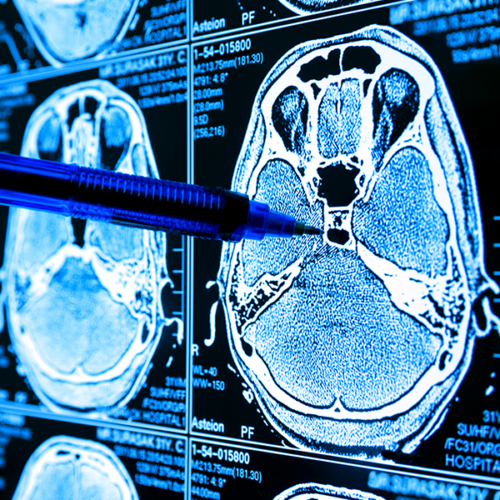
Implementation science focuses on applying and evaluating strategies to incorporate evidence-based interventions into routine healthcare and public health practice. It ensures that proven innovations are adopted effectively, improving patient care and outcomes. Epidemiologists identify disease patterns and prioritize interventions, while biostatisticians rigorously assess the impact and efficacy of these strategies. Informaticians support these efforts by developing data systems to monitor adoption and streamline workflows. Researchers across our department collaborate to close the gap between research findings and practical application, ensuring that health interventions are successfully integrated and sustained in real-world settings.

Large-scale population cohorts are essential for studying health and disease across diverse groups. By conducting and analyzing extensive longitudinal data from sources like electronic health records (EHRs), medical claims, and other health databases, we gain critical insights into disease progression, treatment outcomes, and health disparities. This research addresses key public health questions, tracks long-term trends, and evaluates health factors. Biostatisticians use advanced methods to manage complex data and ensure reliability, while epidemiologists investigate disease patterns. Informatics experts develop tools for effective data integration and analysis. These collaborative efforts enhance our understanding of health dynamics and inform policies and clinical practices to improve healthcare delivery and outcomes.

Within learning health systems, biostatisticians, epidemiologists, and informaticians collaborate to drive continuous healthcare improvement through data-driven research. Biostatisticians ensure the validity of analyses, providing a strong foundation for evidence-based decisions. Epidemiologists contribute by identifying health patterns and evaluating public health interventions on a population level. Informaticians integrate and manage vast healthcare data, developing tools that enable real-time learning and system-wide adaptability. Together, they create a dynamic environment where data informs practice, ultimately enhancing patient care and health outcomes.

Human development spans distinct phases, each presenting unique health challenges that require specialized approaches. Our research in life course epidemiology addresses these challenges with tailored epidemiologic methods. Faculty members in this area engage in a wide range of studies, from reproductive and pediatric health to adult diseases. Our research focuses on promoting healthy pregnancies, managing infertility, optimizing fetal and early childhood development, and improving treatments for childhood illnesses. We also investigate disparities in treatment and outcomes for various adult conditions, exploring why certain populations are more vulnerable to specific diseases and designing targeted interventions. Our work includes examining both common and rare conditions affecting development, leading multi-site research networks, and leveraging large datasets to understand disparities in care. By fostering collaborations between specialists in early and late life, we aim to uncover best practices for sustaining health across life transitions.

A vast amount of valuable health information is hidden in unstructured text, such as clinical records, social media, and scientific literature. Natural language processing (NLP) can unlock these insights, enabling large-scale knowledge discovery in clinical research, decision support, and population health monitoring. Our informatics experts develop cutting-edge NLP methods to extract, encode, and classify information from free text, supporting studies on genetics, patient health history, and population trends. By transforming unstructured data into actionable insights, NLP plays a crucial role in advancing biomedical research and improving health outcomes.

All three of our divisions are committed to developing and evaluating innovative methods for advancing population health research. Our work encompasses a wide range of approaches, including traditional and modern research methods, qualitative and mixed methods, randomized trials, policy evaluation, and mathematical modeling. We have pioneered techniques in qualitative research, time-updated data analysis, causal inference modeling, and the impact of infectious diseases, including COVID-19, on health outcomes and social inequalities. Our faculty lead various cutting-edge randomized controlled trials, including international and national-scale pragmatic, adaptive, mechanistic, and implementation trials. Our department fosters a dynamic training environment, offering structured mentorship and hands-on experience to graduate and post-graduate mentees, enhancing their skills in research methods and applications.
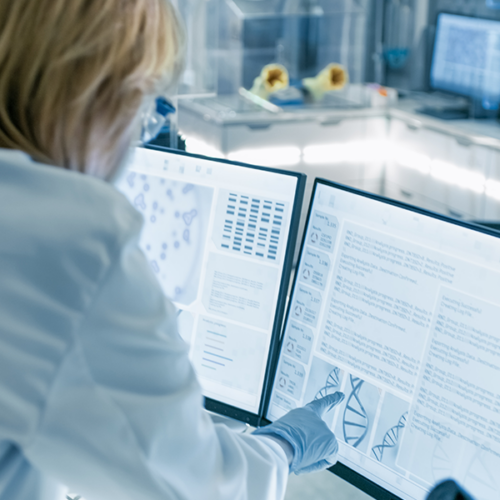
Translational research is dedicated to turning biomedical discoveries into practical clinical tools and treatments. Our faculty focus on advancing precision medicine through the development of polygenic risk scores, data integration, and cutting-edge technologies like artificial intelligence and machine learning. This research addresses complex health challenges, including rare diseases, cancer, biomarkers, pharmacogenomics, and genomic medicine. By synthesizing data from laboratories, clinical trials, electronic health records, and patient-generated platforms, we generate insights that propel biomedical research toward clinical implementation, ultimately improving patient care and public health outcomes.

Discover how our research is shaping the future of biomedical and population health data science.
Kevin B. Johnson, MD, MS, co-authored a National Academy of Medicine report guiding the ethical use of AI in health and medicine.
Congratulations to Dr. Yong Chen on his RECOVER-EHR study being named a 2026 Top 10 Clinical Research Achievement.
A DBEI-led study found rising psychotropic medication use among U.S. youth, along with growing safety concerns such as polypharmacy and potential drug–drug interactions.
A study co-authored by PhD student Julia DiTosto analyzed data from more than 2.7 million individuals and found that uterine fibroids may be associated with a significantly higher risk of cardiovascular disease.
Our partnerships enhance research by providing faculty, researchers, and students with collaborative opportunities, cutting-edge resources, and diverse expertise.
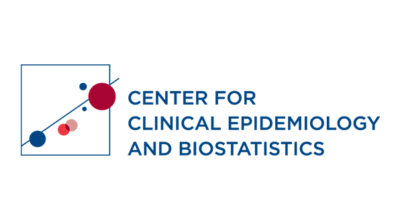
The CCEB is an interdisciplinary and interdepartmental center that links
clinical epidemiology and biostatistics within the Perelman School of
Medicine, University of Pennsylvania Health System, and Penn
community. The CCEB partners closely with the DBEI—our faculty
often serve as CCEB Senior Scholars and contribute to its
education and training programs.
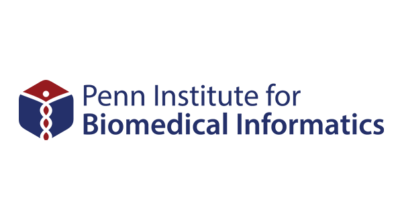
The IBI supports interdisciplinary education, research, and infrastructure across
various fields of biomedical informatics, including bioinformatics, clinical, public
health, and translational informatics. With over 70 diverse research labs, it
houses education programs, research centers, informatics core facilities, and the
Idea Factory, its innovation hub.